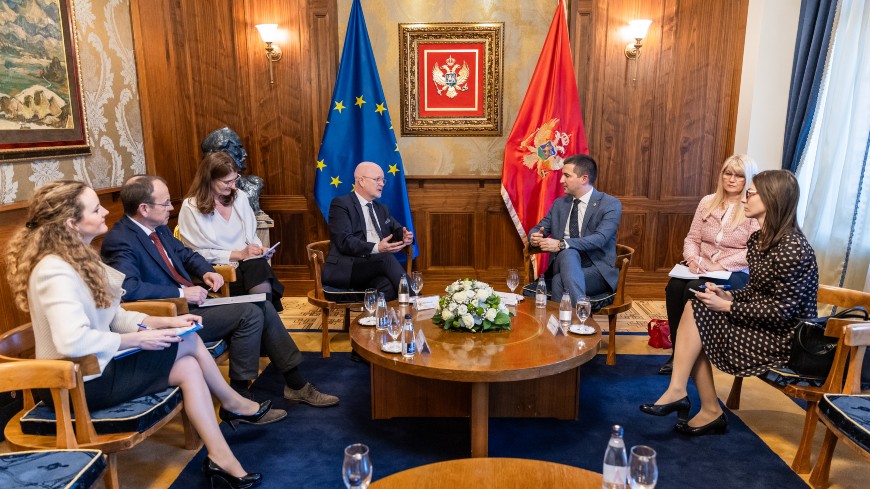The talks focused on the longstanding concerns of the Committee regarding the treatment of persons held by the police, accountability and effectiveness of investigations into allegations of ill-treatment. Also discussed was the system of remand detention in Montenegro, notably poor regimes and the restrictions placed on the rights of persons held in remand to visits and telephone calls. The delegation was particularly keen to learn about the steps being taken to implement the CPT’s recommendations in this regard, as set out in its report on the 2022 visit.
The talks were an occasion for the Deputy Prime Minister and the Minister of the Interior to announce their firm intention to engage in an enhanced cooperation in the area of preventing police ill-treatment and strengthening accountability measures against police abusive behaviour. At the highest political level, the Deputy Prime Minister underlined that Montenegro has “a zero-tolerance policy towards any form of conduct that fundamentally undermines human rights”. In this regard, “the role of the prosecution is crucial, but of course, also the executive branch, which must not be limited only to prosecution but also to measures to suspend officials who have tarnished the honorable police badge with improper conduct." Deputy Prime Minster Bečić emphasised that the Montenegrin government has taken concrete measures, such as amending the Criminal Code, intended to strengthen the legal framework for combating torture and abuse. He underlined that Montenegro was actively working on implementing CPT's recommendations, including through training and the harmonisation of bylaws with these recommendations
At the above meetings, the CPT President, Alan Mitchell, underlined three specific measures that the Montenegrin authorities can implement to better protect detained persons from police ill-treatment and to effect concrete change. These included the obligatory wearing of body cameras by police and criminal inspectors, the compulsory audio-visual recording of all police interviews of suspects, including for informative talks and the obligatory wearing of visible identification tags during all forms of police intervention. These are measures to prevent violence, but also to protect against false accusations against police officers, the CPT President emphasised. Effective accountability with prompt and effective investigations, sanctions commensurate with the gravity of the offence of ill-treatment or torture, zero-solidarity with police abusers and strengthened whistleblower protections and prosecutorial resources also act as powerful deterrence measures against a culture of police impunity, the CPT delegation underlined.
The President of the CPT supported the measures announced by the Montenegrin authorities and very much welcomed the open atmosphere and constructive spirit in which talks were held. He underlined the need for legal change, as well as sufficient resources needed, to fully implement the CPT’s recommendations.
The delegation also held an exchange with Ambassador Oana-Cristina Popa, Head of the European Union delegation in Montenegro.
Prior to the talks, the delegation participated in a Roundtable meeting, which it co-hosted with the Montenegrin non-governmental organisation, Human Rights Action, on 15 February 2024. The Roundtable brought together Government officials, senior police officers, prosecutors as well as members of civil society, the Ombudsperson of Montenegro and representatives from the European Commission and the United Nations.
The CPT delegation was led by Alan Mitchell (President of the CPT) and included Nico Hirsch (member of the Committee), and Francesca Gordon of the CPT’s Secretariat.




